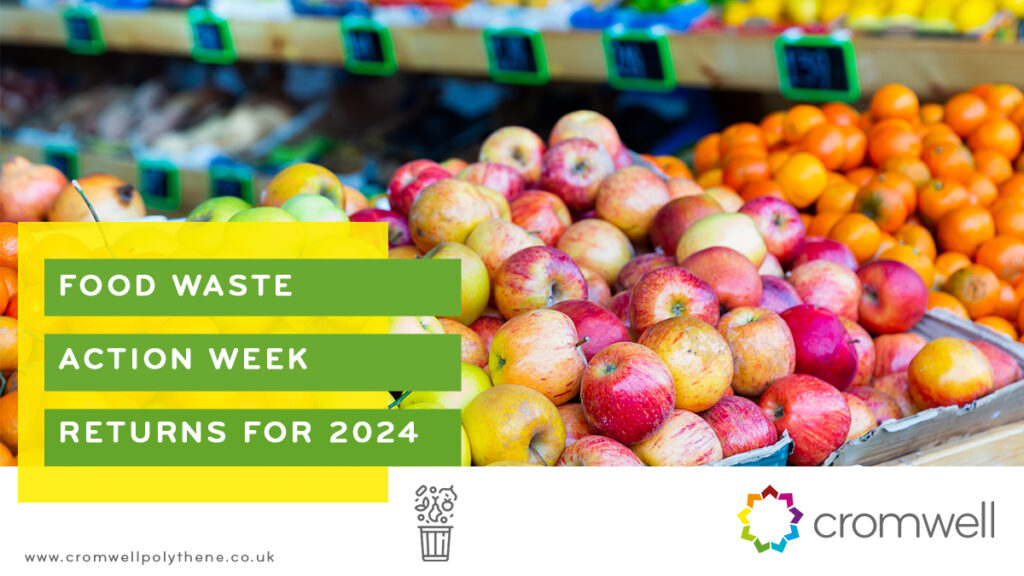Cast your minds back to 2022, when WRAP’s ‘Love Food, Hate Waste’ brand wanted to create a new campaign to help tackle the ever-growing concern that is food waste. In response, they premiered their first-ever ‘Food Action Waste Week’ and now 3 years on, the campaign has grown from strength to strength, spanning across many countries across the world. LFHW stated that after the launch of the campaign, 8 million people heard about the food waste issue, following this, nearly 55% of these people took action to reduce the amount of food they bin at home as a result.
Tackle Food Waste Head On!
Food Action Waste Week takes place each March, and focuses the world’s attention on the issues of food waste and how it is contributing the climate change and the negative impacts it has on the planet. As well as promoting the overall effectiveness of waste reduction and recycling, the campaign also focuses on an annual theme, one that they believe will make big advances if steps are taken. This year, LFHW are taking a focus on fruit and vegetables, one of the most wasted foods from households, typically these were also intended to be eaten, but have expired before they were consumed, and there for discarded.

Food Waste Action Week 2024 will be encouraging citizens to ‘Choose What You’ll Use’, highlighting the benefits of buying loose fruit and vegetables and inspiring people to do this wherever they can. FAWW has stated ‘buying loose reduces food waste – WRAP research has shown that if all apples, bananas and potatoes were sold loose, we could save 70,000 tonnes of food waste by enabling people to buy closer to their needs’. The main issue with buying in bulk is that although it may seem more convenient at the time, we often overestimate what we need, leaving the unused fruit or vegetables to rot. Instead of buying multi-packs, make the shift to loose items, which are readily available in most supermarkets and greengrocers. Some of the most wasted vegetables include potatoes and carrots, and the main fruit culprits are apples and bananas. By buying only what you will need, the effects on the planet will help dramatically to heal the health of the planet.
Cromwell’s Compostables
FAWW helps to make huge differences in the way we purchase and consume our food to help reduce the waste we produce, and despite only being a week long campaign, these messages are followed and carried out by many year-round. There are still instances where waste is inevitable – especially in food service environments, and for non-edible foods such as egg shells and peelings, the importance shifts from reduction to recycling. At present there is only around half of UK local authorities offer food waste collections to their residents, but with upcoming legislation coming into force, this is soon set to change and become a universal form of household recycling. Compostable liners are often a preferred choice due to an increase in participation rates and a reduction in contamination. For residents, using liners is a much more hygienic and convenient option, allowing for little mess, odours and easier disposal. Take a look at our range of compostable liners, helping to securely capture the food waste which cannot be avoided. We also have a new range of compostable gloves, ideal for food handling food in kitchens and food service areas.
Cromwell has been expert in the waste industry for over 40 years, and fully supports campaigns such as Food Action Waste Week, to try and mitigate the effects that wrongful waste management and poor recycling have on the planet. If you would like to discuss your waste management needs, please get in touch with one of our professional account managers who will be able to advice.
Get involved in FAWW which is being held on 18th – 24th March, learn more on their website.